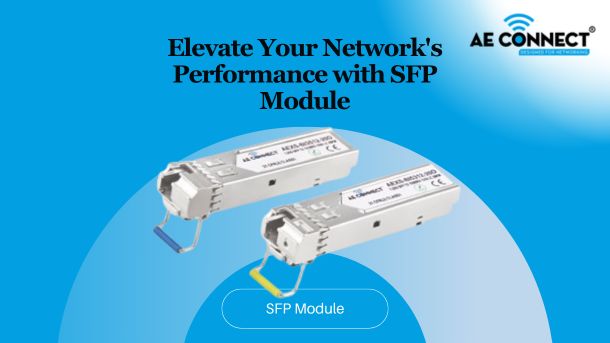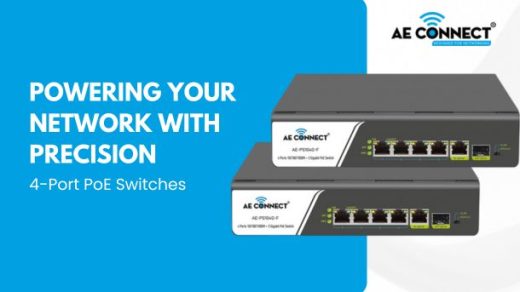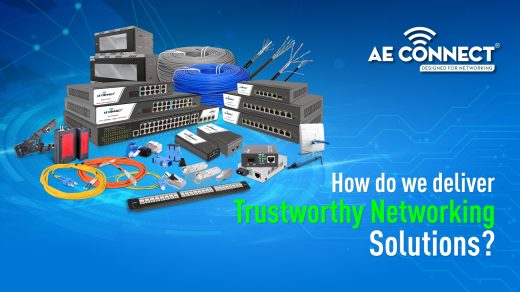Hey there, fellow tech enthusiasts!
SFP module- Today, we’re plunging deep into the world of networking and exploring a small yet mighty component that plays a significant role in keeping our data flowing seamlessly – the SFP module. If you’re wondering what in the world an SFP modules is and why it’s crucial for your network, you’ve come to the right place.
Get ready for a journey through the intricate web of SFP modules and by the end of this read, you’ll be well-versed in the art of future-proofing your network.
What is an SFP Module?
Let’s start with the basics. The full form of SFP is a Small Form-factor Pluggable, and a module is essentially a small device that can be plugged into a larger system.
In the realm of networking, an SFP module is a compact, hot-pluggable transceiver used for both telecommunication and data communication applications. These modules are commonly referred to as mini-GBICs (Gigabit Interface Converters) because of their capability to convert signals between electrical and optical formats.
Now, you might be thinking, “Why the buzz around these tiny modules?” Well, my friend, it’s all about versatility. SFP modules come in various types, allowing you to customize your network setup based on your specific needs. Whether you’re dealing with different data rates, cable types, or transmission distances, there’s an SFP module for the job.
What are the Types of SFP Module?
Now, onto the nitty-gritty details. SFP modules come in various flavors to suit different network requirements. From the standard SFP to the specialized SFP+, SFP28, and beyond, there’s a whole smorgasbord of options to choose from.
Each type offers unique features and capabilities, catering to specific bandwidth and transmission speed needs. It’s like assembling your dream team of superheroes, each with their own superpower to save the day.
What is the SFP Module Used For?
Picture this – you’ve got a bustling network with data zipping around like bees in a hive. The SFP module acts as the bridge between your network devices, providing a seamless connection between switches, routers, and other networking equipment. It’s like the real hero working behind the scenes, ensuring that your data reaches its destination without a hiccup.
They are commonly used in both telecommunications and data centers. They support a wide range of communication standards, making them the go-to choice for professionals who demand flexibility in their network infrastructure.
How to Connect the SFP Module?
Connecting an SFP module is a breeze. It’s like plugging in your headphones – simple and foolproof. These modules come with a small latch that you gently push or pull to insert or remove them. The hot-pluggable feature means you can do this without powering down your equipment, minimizing downtime, and keeping your network humming along.
Now, you might be wondering about compatibility. Fear not! They follow industry standards, ensuring that they play nicely with a variety of devices. Just make sure to check the specs and you’re good to go.
Is SFP Only for Fiber?
Ah, the age-old question. While SFP modules are often associated with fiber optics, they’re not exclusive to it. They come in both optical and electrical varieties, offering you the flexibility to choose the medium that suits your needs.
Optical SFP modules use fiber optic cables for data transmission, making them ideal for longer distances and environments where electromagnetic interference is a concern. On the other hand, electrical SFP modules use copper cables, providing a cost-effective solution for shorter distances within a controlled environment.
What Is the Difference Between Optical and Electrical SFP Modules?
Let’s break it down. Optical SFP modules use light pulses to transmit data, offering higher bandwidth and longer reach compared to their electrical counterparts. They shine in scenarios where data needs to travel significant distances without compromising speed or quality.
Conversely, electrical SFP modules transmit data using electrical signals over copper cables. While they might not boast the same long-distance capabilities as optical modules, they excel in short-range, high-speed applications, making them perfect for data centers and enterprise networks.
What is the SFP Module’s Working Principle?
Now, let’s get a bit technical. The working principle of an SFP module revolves around its ability to convert electrical signals into optical signals (for optical modules) or transmit electrical signals over copper cables (for electrical modules). This magic happens inside the module through a combination of lasers, photodetectors, and sophisticated electronics.
When data is sent, the SFP transceiver takes care of encoding and modulating it into a format suitable for transmission. The module at the receiving end then decodes and demodulates the signals, ensuring that the original data is retrieved accurately. It’s like a high-stakes game of telephone but with lasers and cables.
AE Connect – Future-Proofing Your Network
Now that you’re well-versed in the world of SFP modules, it’s time to take a step towards future-proofing your network with the best in the business – AE Connect. As seasoned SFP module manufacturers, AE Connect takes pride in delivering top-notch quality and reliability.
Why choose AE Connect, you ask? Well, it’s simple. With over three decades of experience in the industry, AE Connect understands the ins and outs of networking. Our SFP modules are crafted with precision, ensuring seamless compatibility and stellar performance. So, if you’re looking to elevate your network to the next level, AE Connect has got your back.
Bid farewell to network headaches and shake hands with a future-proof, high-performance infrastructure that can keep up with the demands of today and tomorrow.
Conclusion
In a nutshell, the world of networking may seem intricate, but armed with the right knowledge, you can navigate it like a pro. So go ahead, future-proof your network with the magic of SFP modules, and let AE Connect be your trusted partner on this journey. Happy networking!




